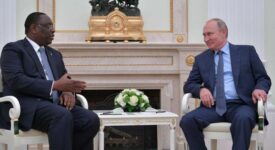Daniela Huber and Maria Cristina Paciello (Istituto Affari Internazionali)
Since the European Union is re-assessing its European Neighborhood Policy, this document requires a completely new approach to the situation in the Mediterranean – that is to respond to the key needs on both sides in a more effective manner and to be more flexible at the multilateral and bilateral level. It is necessary to outline strategic policy options – the defense approach, the active approach and the reflexive approach.
The first, strategic approach, aims backwards, which is to defend Europe and turn it into a fortress. This approach is based on the defense vision of realism, constructivism or isolationism. From an isolationist position, the first concern of the state is not to maximize energy but rather to retain its position in the system. The constructionist position then perceives MENA countries as a threat to Europe’s ontological security, where the biggest danger does not come from its whole body but merely from its separate parts. In this way, Europe will withdraw into its own fortresses.
The second, active approach, aims at a more sophisticated regional policy with the Mediterranean countries. Due to its unfinished battles, Europe can lose its economic allies in MENA countries, that is the countries, with whom it maintains an active trade relationship. To advance dialogue across the Mediterranean, it is crucial to create a dialogue at a bilateral and multilateral level that would be conducted between the EU and the countries that are still interested in the communication concerning any kind of topic. Other organizations, such as the African Union, the Organization of Islamic Cooperation or the Gulf Cooperation Council could be included too.
The third, reflexive approach, speaks about the EU’s perception of the feedback in the MENA countries. Europe exports its liberal approach to these countries along with democratic ideas, though it heeds their reaction to that less frequently. Therefore, a discussion about how to further broaden European ideas should be introduced while also more flexibility should be brought into this diplomatic folder.
(The study can be downloaded here: http://www.iai.it/sites/default/files/iaiwp1535.pdf)







